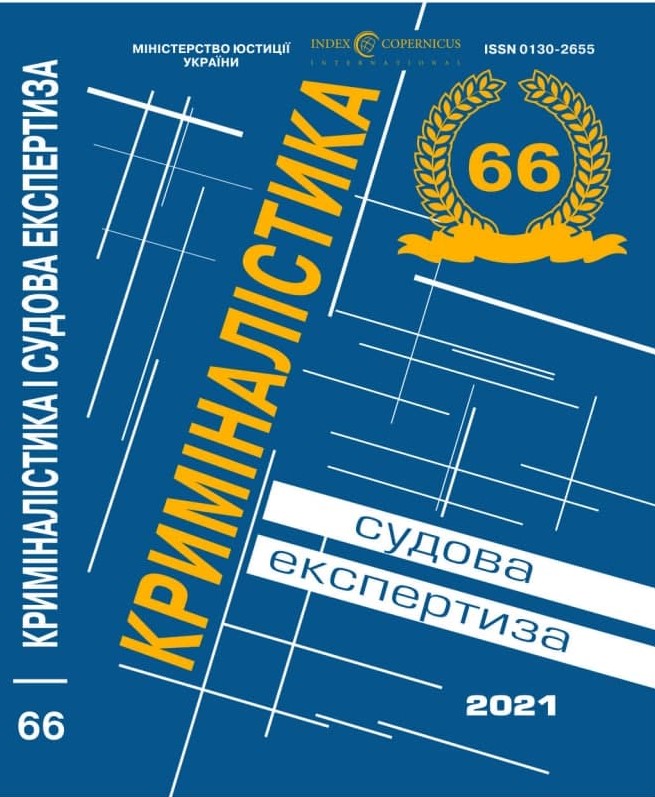
DOI: https://doi.org/10.33994/kndise.2021.66.11
O. Baulin O. Izotov
The article considers the procedural and forensic aspects of the verification and assessment of an expert’s conclusion in criminal proceedings, its regulation under the current legislation of Ukraine.
The authors define the assessment of the expert’s conclusion and indicate its structural elements and features, as well as what is its difference from the verifying the expert’s conclusion, since the latter is characterized not only by the operations of mental activity, but also by the conduct of investigative (search) and other procedural actions. It is noted that the verification of the expert’s conclusion in criminal proceedings always precedes its assessment.
The assessment of the expert’s conclusion includes the analysis of the follows:
– compliance with the procedural rules for the appointment, conduct and execution of the xamination;
– competence and adequacy of an expert;
– expert’s conclusions on compliance with the tasks assigned to him/her;
– completeness and scientific validity of the conclusion;
– the data of the conclusion regarding its relevance;
– compliance of the expert’s conclusion with other evidence collected in criminal proceedings.
The subjects carrying out criminal proceedings pay particular attention to the modern practice of assessing the expert’s conclusion. The approach is perceived critically, according to which only the categorical conclusion of the expert has evidentiary value, and the court cannot base the judgment on the probabilistic conclusion. Based on the provisions of the principle of the presumption of innocence, and on the example of the assessment of the conclusions of the forensic medical examination on the probabilistic cause of the death of the victim, which was made by the Supreme Court, applying the standard of proof beyond reasonable doubt, the authors point to the obligatory use of probabilistic expert conclusions by courts to justify its acquittals.
The article draws conclusions about the current state and limits of legal regulation of the assessment of an expert’s conclusion in criminal proceedings, the rules of which, according to the authors, do not need to be fixed in a separate article of the Criminal Procedure Code of Ukraine.
Key words: expert’s conclusion, an expert, verification of expert conclusion; assessment the expert’s conclusion; forensic examination, criminal proceedings.










